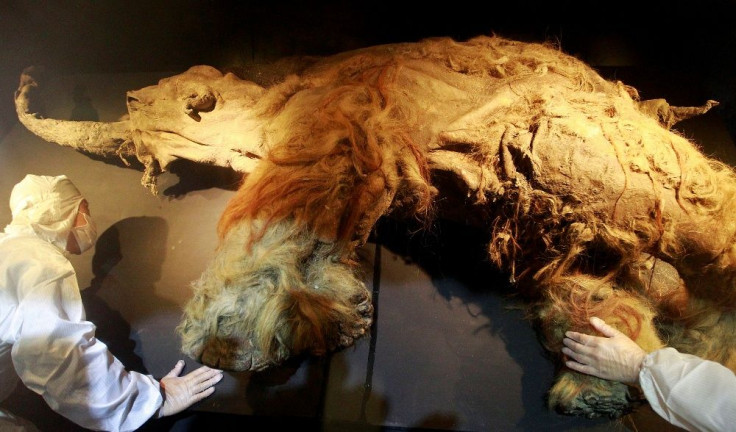Return of the woolly mammoth: Researchers set to clone the species' remains recovered in Siberia

A team of researchers at the North-Eastern Federal University in Russia is hoping to see the extinct woolly mammoth walk in the permafrost again. The team is planning to clone a woolly mammoth using the species' skin remains recovered from Lyakhovsky Islands in Siberia.
The researchers believe that the 10,000-year-old remains recovered from Siberia's permafrost contain the skin cells that could potentially be used to resurrect the giant. In case the skin cells are successfully recovered from the preserved remains, the researchers will use the eggs of the Asian elephant in the cloning experiment. The Asian elephant is one of the closest relatives of the extinct woolly mammoth.
To make the project a reality, the Russian researchers have signed a deal with the Beijing Genomics Institute and the Sooam Biotech Research Foundation in Seoul, South Korea. The project, dubbed “Revival of the Mammoth,” reportedly seems realistic; however, a cloned or a hybrid embryo rarely grows up to a full term.
“The skin is especially interesting for the ‘Revival of the Mammoth’ project. Our Korean colleagues believe that skin is the best material for cloning attempts through finding viable cells. Now we are studying the skin in our new laboratory,” said Semyon Grigoryev, the project lead, in an interview with the Siberian Times.
Meanwhile, a research team at the Harvard University has already copied 14 genes from the genome of the woolly mammoth to the genome of an Asian elephant's egg. The experiment could lead to the development of a mammoth-elephant hybrid.
Even though researchers are excited about the project, they fear that the resultant cloned creatures could end up with a myriad of health issues. In addition, the changes in the climate and the habitat conditions could reportedly make it difficult for the embryos to survive.
Contact the writer at feedback@ibtimes.com.au, or let us know what you think below.





















